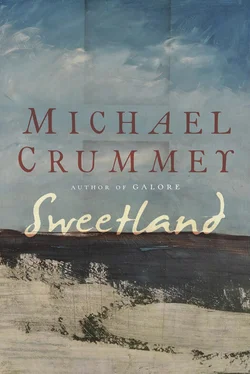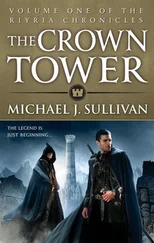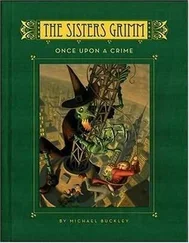“Tell me about the pig you had,” Jesse asked then.
“What pig?” Sweetland said.
“The pig used to chase you and Hollis.”
“I don’t remember much about it,” he said. He spat over the gunwale into the water. Almost angry to feel so relieved.
“Your father bought a piglet.”
“Right,” he said. “Father bought a piglet from old man Vatcher one spring, kept it in the shed out back.”
As pale and inquisitive as an infant child, it was. Old eyes watching them. He and Hollis fought over who would bring it table scraps and fish guts, the pink snout raised above the rail as they approached the pen. Through the summer it foraged free and learned to follow them around the property, sat outside the door while they ate their meals. A year later it weighed as much as a handbar of salt fish, five feet from snout to tail. It had taken to waiting for Sweetland and Hollis to come home from school, chasing them out to the flake used for drying capelin and squid, the boys jumping onto the surface and the pig rooting underneath in a mock fury. They’d make a break for the shed with the snorting pig at their heels, climb the walls of the pen, shouting down at the creature snuffling beneath them. It shouldered the boards so the building shook, waiting for them to head to the flake. They’d go back and forth between the two refuges a dozen times, until their mother or Uncle Clar told them to stop tormenting the animal.
Jesse turned his head to the water suddenly, taking up his line hand over hand, the water spinning off the nylon as it came over the gunwale.
“You got one already?” Pilgrim asked.
Sweetland tied off his line to help gaff the fish aboard, but Jesse flicked his catch expertly over the gunwale onto the deck. Stood back then, staring at the thing, his mouth open.
The bag was tied tight at the mouth but the jigger had ripped a hole in the plastic and Sweetland could see the rabbit carcasses inside when he bent to free the hook. The heads and back paws removed. Most of the flesh gone off the bones after two months in the ocean.
“Well?” Pilgrim said from where he was standing aft. “Did he get one?”
Sweetland glanced up at Jesse. He tried to smile, though all the feeling had gone out of his face. “He got one,” Sweetland said, not wanting to explain what the boy had hauled aboard. Not sure he could. “But he’s too small to keep.” He used the gaff to lift the bag out over the water and dropped it, watched it sink down into the dark.
“Well there’s fish about anyway,” Pilgrim said.
“Put your line back out,” Sweetland told the boy. “Where was I?”
“Stop tormenting the animal,” Jesse said uncertainly.
“Put your line out,” Sweetland said again and he handed the jigger across. Once Jesse had fallen into his rhythm, he repeated, “Stop tormenting the animal.”
They never had a name for the pig, which seemed strange to Sweetland after the fact. The Pig, they called it. Piggy. Porker. It would eat from their hands and lick them clean, thorough, fastidious, he could still remember the feel of that tongue between his fingers, the warm snout pushing against his palm. Its eyes closed as it worked, the lashes pale and fine.
They came home from school one afternoon and there was no sign of the pig. Piggy, they yelled. Hey, Porker! Ran to the flake whistling and shouting. Cold enough to see their breath as they called. They crept out to the shed, thinking the animal might have learned to lie in wait for them, planning a sneak attack. They slapped at the walls before poking their heads inside. But the pig was gone. Rooting through the garbage pile back of Loveless’s house in all likelihood, or stuffing itself on the filth thrown into the landwash from the stageheads. And they didn’t think more of it until they sat to their supper, when their father stood to carve a shoulder of pork, laying lavish portions on the plates.
Hollis turned toward him, but Sweetland wouldn’t look at his brother for fear of bawling. He folded his arms and sat as far from the meal as his chair back allowed. And Hollis did the same. Sweetland chewing on the inside of his mouth as the adults cleaned their plates. They were made to sit at the table until after dark. He could hear their parents arguing in the pantry and their mother came in to clear the cold food away. Eight months pregnant with Ruthie then, though the boys were told nothing about it and didn’t realize a child was on the way until the morning the girl was born. They were sent to their room finally and their father was forced to give most of the meat away so it wouldn’t spoil, hocks and crackle, bacon and ribs and chops.
“Father never did speak a word to us about it,” Sweetland said. “Took sick that November month, just after Ruthie was born, and he lay in his bed all winter. Died the end of February.”
“What was wrong with him?”
“What?” Sweetland said. He’d never mentioned his father dying as part of the story before and was surprised to have it come to the surface now.
“Your father,” Jesse said. “What made him sick?”
“No one knows,” he said.
Uncle Clar wanted to take the man across to Burgeo or Placentia to see a doctor, but his father wouldn’t hear of it. I’ll be right the once, he’d insisted. He was almost twenty years older than his wife but still a youngish man, just shy of sixty. And seemed to be getting better, as he predicted, just before he died. Ate a full meal of salt beef and cabbage that Sunday, the first time in months, propped against pillows in his sickbed. Asked after dessert and Sweetland carried up a partridgeberry pudding his mother had boiled in an old baking soda can. His father took three mouthfuls of the pudding, chewing slowly, like he was trying to guess the spices hidden within the whole. Slumped over in bed then, never made a sound.
“He was dead?” Jesse asked.
“Gone,” Sweetland said. “Just like that.”
His father’s ravenous appetite is what Sweetland remembered about the event, how incongruous it was. Eating against his end, Uncle Clar used to say. The body seeming to know ahead of the man himself what was coming.
Pilgrim stood up, leaned a little ways over the gunwale to start hauling in his jigger.
“Have you got one?” Jesse said.
“Feels like a fair size.”
The fish loomed as it rose, pulling dead, the white of its belly flickering out of the dark. “Jesus, she’s heavy,” Pilgrim said. It came to the surface calm, sacrificial, as all cod did, until it broke the surface where it twisted weakly and came clean off the hook.
“Lost her,” Pilgrim said, holding his bald jigger aloft.
“She’s right there,” Jesse said, pointing.
The fish lay stunned and adrift at the surface, as if it didn’t realize yet it was free. Sweetland miles away, stunned and drifting in much the same fashion.
“Right there,” Jesse said again, and Sweetland shook himself into motion finally, tied off his line, reached out with a gaff to snag and haul it aboard. It slapped on the deck without urgency and then lay still, its mouth working soundlessly, the silver coin of one eye gaping at the sky.
“How big is she?” Pilgrim asked.
“Big,” Jesse shouted.
Sweetland put a hand to the gunwale against the ocean’s swell, waiting for the spell of vertigo to pass. “She’s a beauty, all right,” he said.
It was still shy of noon when they made their meagre quota and started back for the cove.
“You want to clean some fish or you want to take the wheel?” Sweetland asked the boy.
“The wheel,” Jesse said.
Sweetland reached into a cooler at his feet for two beers and he sat aft beside Pilgrim, the men cleaning the cod as they steamed in. Gulls swirling above and behind them like a foul plume of engine exhaust, the scavengers screaming and fighting over the guts as they were tossed into the sea.
Читать дальше












